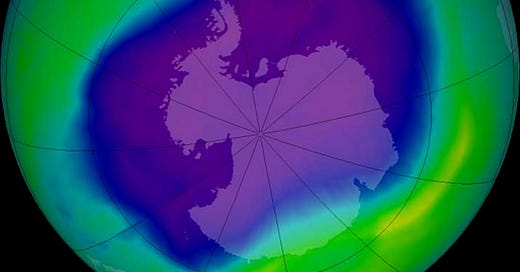“He is free to evade reality, he is free to unfocus his mind and stumble blindly down any road he pleases, but not free to avoid the abyss he refuses to see.” — Alice O’Connor, 1961
1868 — Andrew Johnson Impeached
public domain images from wikimedia commons
So far, four U.S. Presidents have been impeached. The first one to be, and the only one prior to the 20th Century, was Andrew Johnson (1808-1875) of North Carolina and Tennessee, who became President after Abraham Lincoln was assassinated (the other three, in chronological order, were Nixon, Clinton, and Trump).
To be impeached does not mean to be “fired” (removed from office) or even to be found guilty of anything; it simply means that charges were brought against the person. Stated a bit differently, the future political prospects of an impeached President are imperiled and perhaps impaired, but not necessarily shattered.
In Johnson’s case, the “high crimes and misdemeanors” (serious crimes and less-serious crimes) he was charged with revolved around his recalcitrance in implementing Congresses’ Reconstruction policies following the Civil War and his firing of Edwin Stanton, the cabinet member tasked with carrying out those policies.
In order for an impeachment to result in a President being removed from office, the Senate must find them guilty by a two-thirds majority. Johnson escaped by the skin of his teeth, the vote being 35-19 against him. Had there been one more vote in favor of removing him, he would have lost his position. At any rate, Johnson was not re-elected and only served another several months before being supplanted by the next elected President, former Union General Ulysses S. Grant.
Mark Twain wrote the following (for whatever reason unpublished) take on Johnson’s Presidency:
Andrew Johnson, that grand old second Washington, that resurrected Moses, rose & said:
“My children, when I came before the American people four years ago to deliver my inaugural, I was too full for utterance. (Emphatic assenting sobs from the Cabinet.) My emotions at this moment are no less profound . . . In quitting my high office, I am able to look back upon my administration of its duties without regret. By diligently violating my oath; by stultifying myself upon every occasion; by being stubborn in the wrong, & feeble & faithless toward the right; by obstructing the laws; by nursing anarchy & rebellion, & by deliberate treachery to the party that made me & trusted me, I have wiped away the contempt in which, because my obscure origin & humble occupation, my own loved section of the country did formerly hold me . . . My great deeds speak for themselves. I vetoed the Reconstruction acts; I vetoed the Freedmen's Bureau; I vetoed civil liberty; I vetoed Stanton . . . I hugged traitors to my bosom; I pardoned them by regiments & brigades . . . I smiled upon the Ku-Klux . . . I have made the name of office-holder equivalent to that of rogue; born & reared 'poor white trash,' I have clung to my native instincts, & done every small mean thing my eager hands could find to do. . . . My work is done; I die content.”
There was not a dry eye in the house; neither was there a sore heart. These inspiring words had driven all grief away. It was now after 12 o'clock. No time must be lost. Gideon produced a deck of cards, & we played seven-up for the furniture.
In the other Presidential impeachment cases to go to a Senate vote (Nixon resigned before it could get that far), both Clinton and Trump “won” fairly handily, with only about half voting for impeachment in their cases.
Coincidentally, another Johnson (Lyndon Baines, known as LBJ) was President 100 years later, in 1968.
Questions: Does the word “impeach” imply to anyone besides U.S. Presidents? Why did Johnson not want to cooperate with Reconstruction policies? Had he been born in North Dakota instead of North Carolina, and lived in Green Bay, Wisconsin rather than Greeneville, Tennessee, do you think his stance would have been different?
1985 — Ozone Hole Discovered Over the South Pole
public domain image from wikimedia commons
Forty years ago today, three British scientists published their findings that there was a hole in the protective ozone layer above the South Pole which allowed harmful levels of ultraviolet solar radiation to reach the earth.
Scientists had earlier concluded that the destruction of the ozone layer was caused by human activity, specifically as a result of CFCs (chlorofluorocarbons) in the atmosphere, which had been present in air conditioners and aerosol sprays. CFCs had already been banned by the EPA (Environmental Protection Agency) in 1978, but this discovery of the damage that had been caused raised awareness of the stark reality of what had been wrought.
As of the time of writing (5/16/2025), CFCs are still banned in the U.S., but with many changes taking place at the EPA, there’s no guarantee that will continue to be the case. In fact, according to an AI-fueled google response to my prompt “what is happening with the epa,” this is the current state of affairs:
The EPA is experiencing significant changes, including rollbacks of environmental regulations, shifts in its mission, and potential workforce reductions. Recent news includes rollbacks of some "forever chemical" limits in drinking water, potential reductions in energy efficiency programs, and a plan to target various environmental regulations.
Key Developments:
Rollbacks and Deregulation:
The EPA is actively rolling back or reconsidering numerous environmental regulations, including those related to air pollution, water quality, and energy efficiency. This includes a partial rollback of limits on "forever chemicals" in drinking water.
Questions: Had you heard of CFCs prior to reading this? How much faith do you think it’s prudent to have in political efforts to solve problems? Have you heard Commander Cody’s album Lost in the Ozone?
Read about “The Secret Lives of Kids” here.








